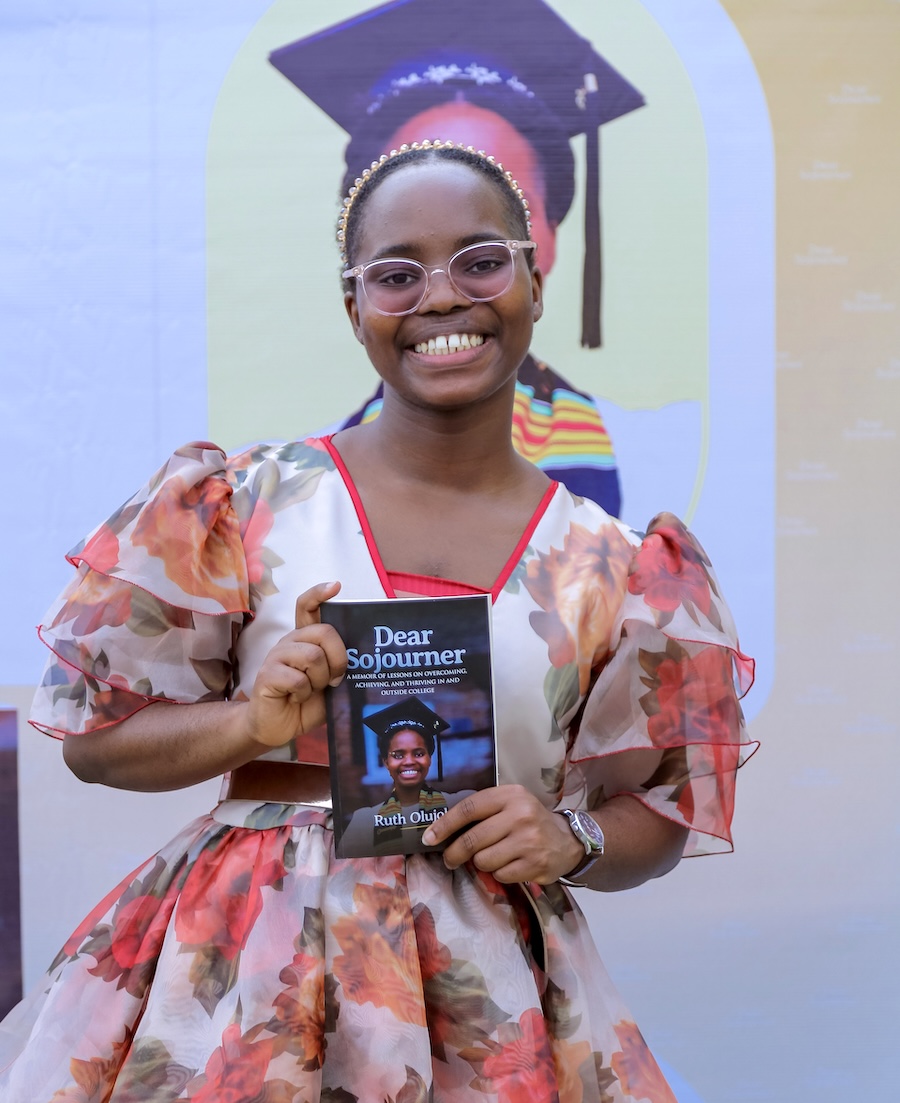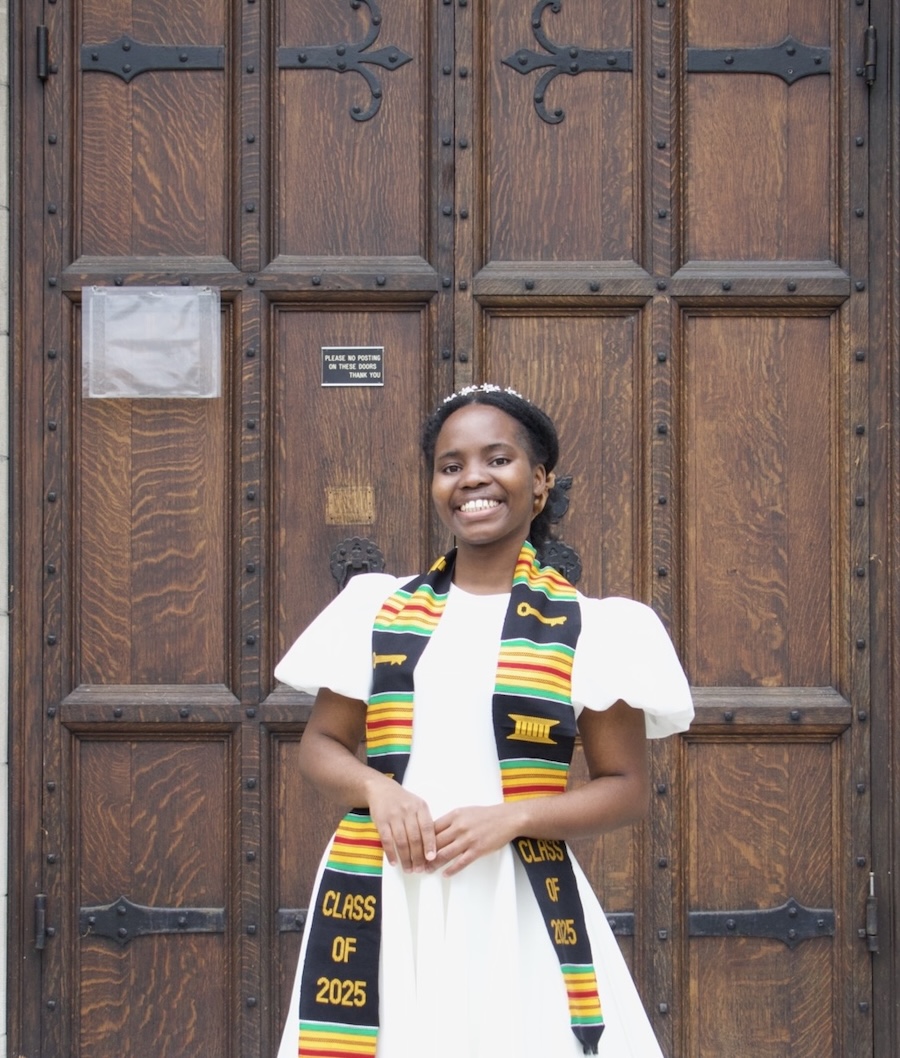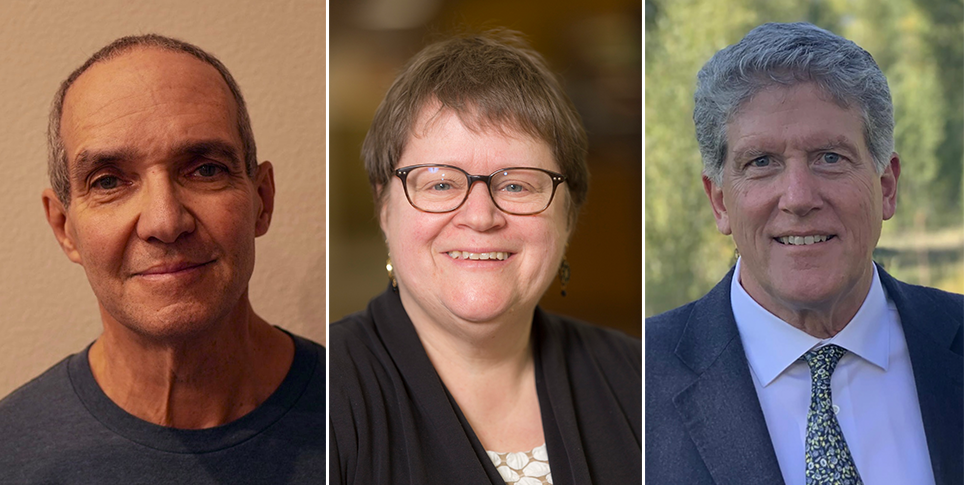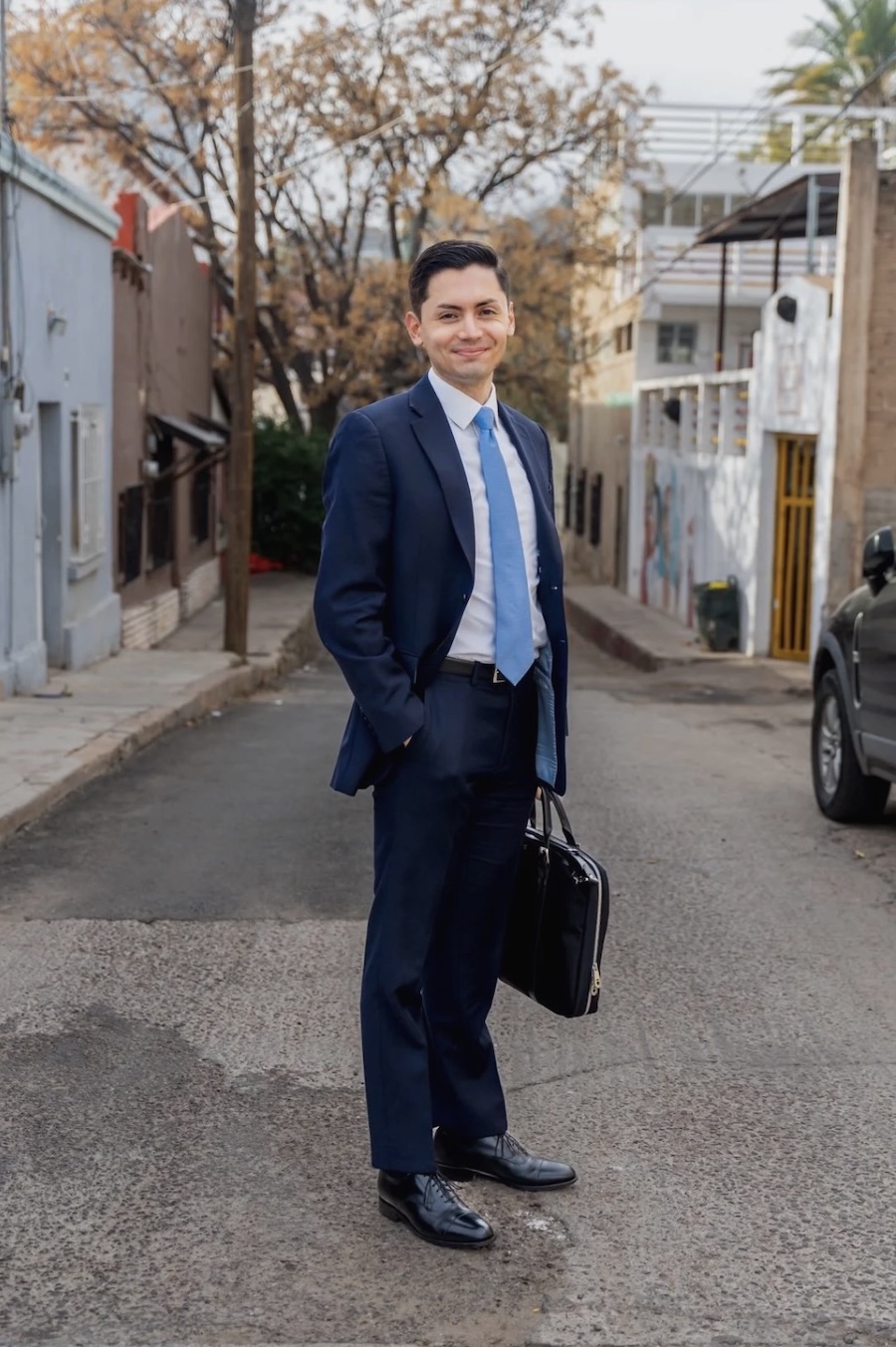First Task After Graduating: Publishing a Memoir about College
By Rebecca Goldfine
Though Olujobi’s story is somewhat unique—she was an international student at a liberal arts college in New England, and the first in her family to attend college abroad—she said she wrote the book to connect with every college student, first-years to seniors, no matter where they're from.
“But,” she added, “I hope first-years especially read it, because I poured a lot of my heart, reflections, and lessons I’ve learned into the book.”
And, as she points out, the start of college is a particularly important time. “This is a fresh opportunity for you to build the life of your dreams. There is so much ahead of you.”
In an online review of Dear Sojourner, Randy Nichols—Bowdoin’s former head of security—praises the book as inspiring and instructive. It “promises to resonate strongly with prospective college students and their families,” he says. “I have already purchased an additional copy to share with my twelve-year-old granddaughter.”
Another reviewer writes, “I wish I had it from the beginning of my journey here. I would have felt more supported and less alone in my college journey as an international student.”
“My arrival in the US was no ordinary arrival—it was the arrival of a dreamer-girl who had come a long way. ”
—Ruth Olujobi ’25
Olujobi managed to write most of the book during her final semester at Bowdoin—a feat she accomplished despite having a heavy academic load, leading the student Africa Alliance and organizing a series of high-profile events, and working as a proctor for Residential Life. “I stayed up late at night a lot!” she said.
In the quiet stretches of these long nights, she’d finish her class essays and study for exams—and at times send off a job application—and then get to work on her writing. “It was a whole experience,” she said. “But I knew this book was so meaningful to me, and I knew I had to find the time, so I stayed up until 2:00, 3:00 a.m.”
“Even when it was the hardest to write, I kept reminding myself that this book is more than me, there are many people I can reach with it.”
The Sojourner
Olujobi grew up in Ikorodu, a bustling suburb of Lagos, with “many struggling to make ends meet,” she describes. As a little girl, she would join her mother after school to help run a market kiosk where they sold school bags, shoes, and in time, groceries and household necessities.
After moving in with a wealthier family to access a better education, Olujobi began to harbor the first inklings of a big ambition: to travel beyond Nigeria for college. This dream merged with another she’s had since as long as she can remember—to become a doctor.
A few weeks before graduating from high school, she connected with EducationUSA in Lagos, an organization supported by the US Department of State to help foreign students gain admission to American schools.
After two gap years, and managing college applications during the pandemic, Olujobi arrived at Boston's Logan airport in 2021. She describes looking around in disbelief at the crowds and cavernous hallways. She also felt an intense joy.
Making it this far, with a scholarship to attend Bowdoin, was “a big deal” for her, she said, but it was also a big deal for her family, her teachers, her community, and “everyone who knew where I was coming from.”
“My arrival in the US was no ordinary arrival—it was the arrival of a dreamer-girl who had come a long way.”
 At Bowdoin, Olujobi majored in neuroscience and minored in German. This spring, she received the President’s Award in recognition of her exceptional personal achievements and uncommon contributions to the College, as well as the Dunlap Prize for her essay on serving the common good.
At Bowdoin, Olujobi majored in neuroscience and minored in German. This spring, she received the President’s Award in recognition of her exceptional personal achievements and uncommon contributions to the College, as well as the Dunlap Prize for her essay on serving the common good.
In her first year at Bowdoin, she began a monthly podcast called Blooming Daily about health and wellness, which now has listeners in thirty-five countries. As president of the student group Africa Alliance, she organized a series of speakers this spring to discuss conflict resolution in Africa.
This summer, she received a $10,000 Project for Peace prize to return to Nigeria and launch a STEM-access initiative, Rekora, for students in under-resourced high schools in Lagos.
She plans to attend medical school.
Dear Sojourner
Some of the impetus to write the book came from the many times Olujobi heard fellow students repeat, “You should write a book!” As she progressed through Bowdoin, she said she often found herself answering the questions of younger students about navigating college.
Dear Sojourner is divided into twenty chapters. Olujobi invites her readers to approach “the book however you see fit—sequentially or bouncing around different chapters.”

These touch on friendship, building community, academics, leadership, self-care, building new habits, handling homesickness, romantic relationships, finances, practicing gratitude, staying focused on dreams, and dealing with loss and failure.
One addresses how to amplify opportunities. “Coming to Bowdoin for me was a life-changing opportunity and at Bowdoin I was constantly maximizing opportunities. And I wanted to help other students do the same,” she said. “But there were also bumpy parts, so I speak about failure, including the first exam I actually failed. I cried.”
Additionally, the book has a chapter on FOMO (fear of missing out) and Olujobi’s Christian faith. “That has been the big anchor for me throughout my time at Bowdoin, and it defines how I choose to show up in the world,” she said.
Lessons from Writing a Book
Writing the book was both a testament to Olujobi's fortitude and an act that reinforced this natural tendency of hers. “I learned I am capable of doing hard things even when I don’t fully believe it,” she said. “I have known that for a long time, but it is easy to forget. So, this was a timely reminder for my graduation and transition to a new chapter of my life.”
She is still gleaning wisdom from her own struggles and triumphs, and the effort she made to complete the book is no exception. “Little efforts really do matter,” she said. “Some days I would struggle to write for just twenty minutes, but I learned that every effort counts. They add up.”
Perhaps most importantly, she said she wouldn't have been able to finish the book without a community of people “cheering for me every step of the way. That made it possible to keep writing. Support is so important.”



